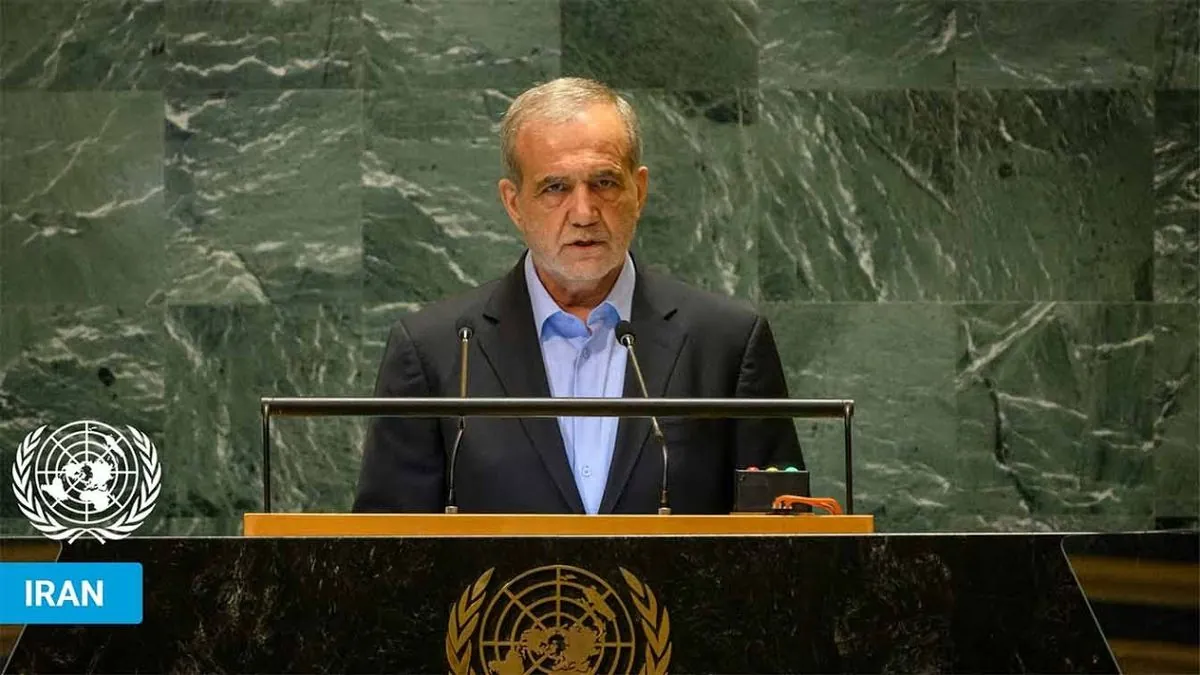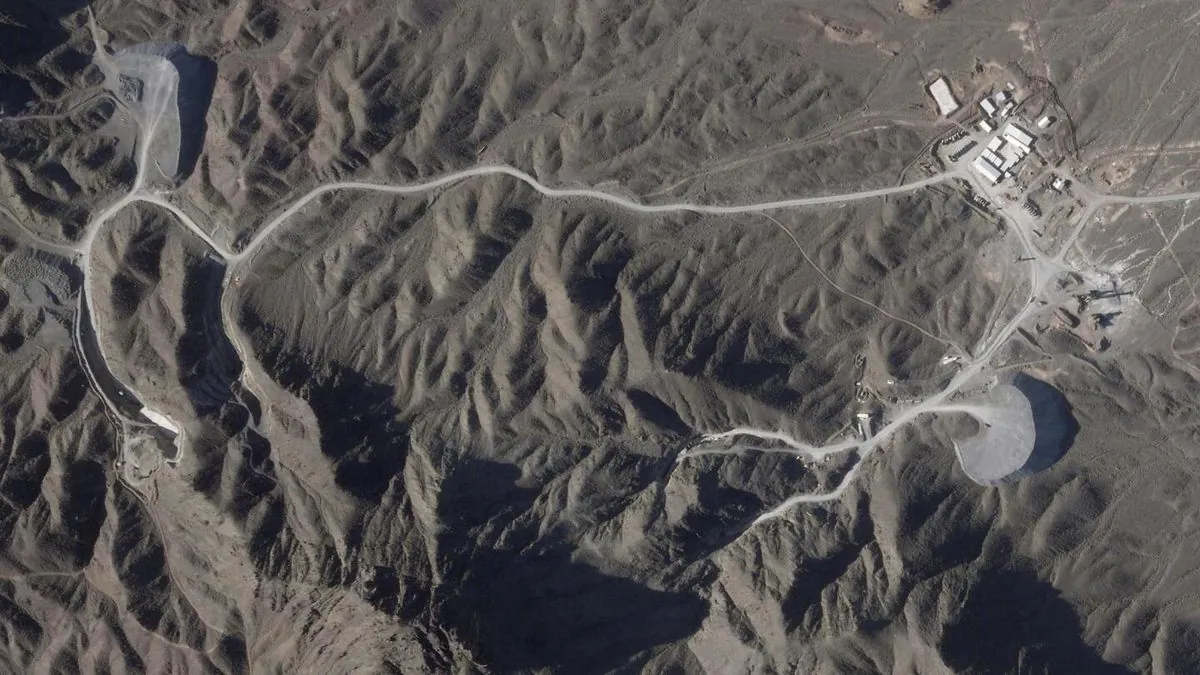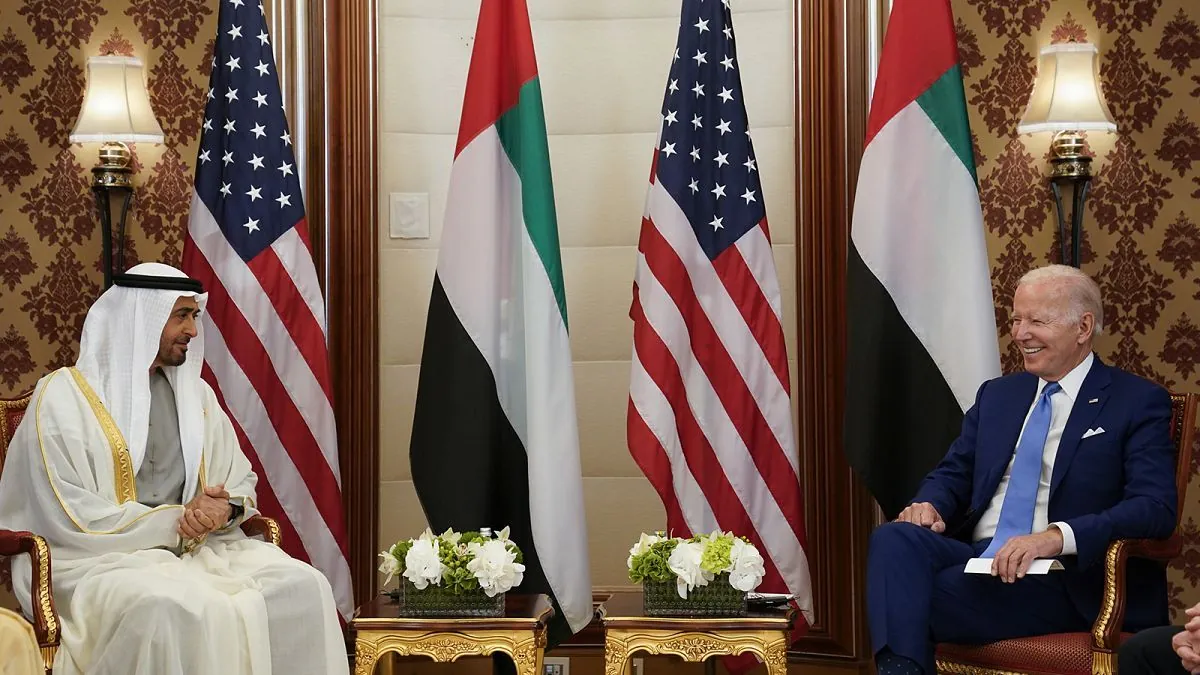Iran's New President Calls for Diplomacy at UN, Faces Domestic Pressure
Iran's reformist President Pezeshkian advocates for sanctions relief at UN, signaling readiness for nuclear talks. Domestic hardliners criticize his approach, as regional tensions persist.

At the United Nations General Assembly in New York on September 24, 2024, Iran's newly elected reformist president, Masoud Pezeshkian, delivered a clear message advocating for the lifting of sanctions and improvement of economic conditions for Iranians. This event, occurring 79 years after the UNGA's establishment in 1945, marked a significant moment in Iran's diplomatic efforts.
Pezeshkian's address centered on the Joint Comprehensive Plan of Action (JCPOA), the nuclear agreement signed on July 14, 2015. This deal, which limited Iran's nuclear capabilities in exchange for sanctions relief, has been effectively dormant since the United States' withdrawal in May 2018 under the Trump administration. Despite this setback, Pezeshkian and his team of experienced negotiators have expressed willingness to either revive the original agreement or construct a new one.

The JCPOA was once viewed as more than just a nuclear accord; it was seen as a potential pathway to resolving broader US-Iran disputes in the region. This perspective aligns with Iran's nuclear program history, which began in the 1950s under the Atoms for Peace program. The International Atomic Energy Agency (IAEA), established in 1957, has played a crucial role in monitoring Iran's nuclear activities.
Ayatollah Ali Khamenei, Iran's Supreme Leader since 1989, had previously hinted at the possibility of broader talks following a successful nuclear agreement. This stance reflects the complex political landscape within Iran, where the Islamic Republic has been in place since 1979.
Pezeshkian's election, while not meeting the democratic standards of leading nations, represents ongoing debates within Iran's political establishment and society. His platform, emphasizing de-escalation and pragmatic diplomacy, has garnered support from various factions, including some conservative forces.
The approval of Pezeshkian's cabinet, including Foreign Minister Abbas Araghchi, by the conservative-majority parliament, demonstrates a fragile consensus for diplomatic engagement. This development is particularly noteworthy given Iran's history of international sanctions, which began in 1979 and intensified with UN Security Council sanctions in 2006.
"Hezbollah is capable of defending itself but has chosen restraint. The international community must act now before the situation spirals out of control."
Zarif's statement highlights the delicate balance in regional politics, referencing organizations like Hezbollah, founded in 1985, and Hamas, established in 1987. The assassination of Hamas leader Ismail Haniyeh in Tehran on August 1, 2024, has further complicated the situation.
The Persian Gulf region, holding about 50% of the world's oil reserves, remains a focal point of international concern. Countries like the United Arab Emirates and Qatar, which joined the UN in 1971, play significant roles in regional dynamics. The US has maintained a military presence in the area since the 1980s, underscoring its strategic importance.
Pezeshkian faces growing pressure from hardliners at home, who criticize his diplomatic outreach and appointments. This internal tension reflects the broader challenges in US-Iran relations, which have lacked formal diplomatic ties since 1980.
As the November 2024 US elections approach, direct negotiations between Washington and Tehran seem unlikely in the immediate future. However, the Biden administration and its allies can still lay groundwork for future talks, particularly in areas such as nuclear transparency.

The stakes are high, with Iran's economy being the second largest in the Middle East after Saudi Arabia. Engaging with Pezeshkian's government offers a chance to reduce tensions, prevent further nuclear development, and avoid potential conflict. For those committed to preventing a nuclear-armed Iran and avoiding regional escalation, timely action is crucial.


































